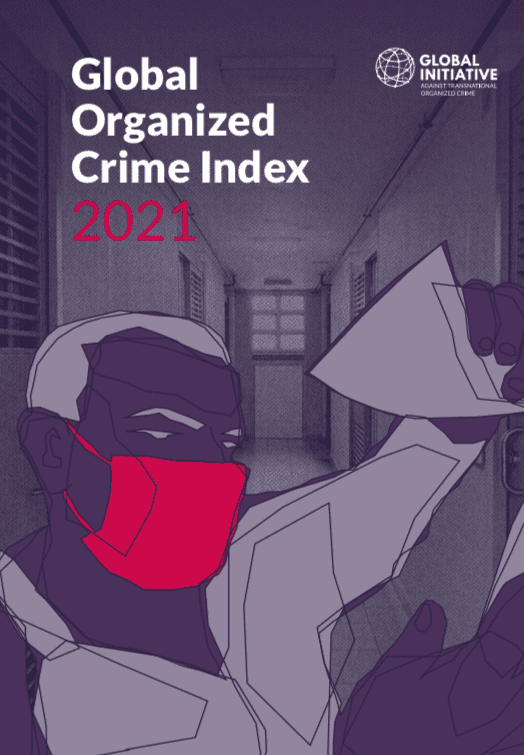
Global Organized Crime Index 2021
The Global Organized Crime Index is the first tool of its kind designed to assess levels of organized crime and resilience to organized criminal activity. It includes in its rankings all the UN member states – 193 countries.
The results, which draw from a comprehensive dataset informed by experts worldwide, paint a worrying picture of the reach, scale and impact of organized crime. It is a sobering thought, for instance, that nearly 80% of the world’s population today live in countries with high levels of criminality. It is equally alarming to consider that the exploitation of people, in the form of human trafficking, has become the most pervasive criminal economy in the world – a development that serves as a dark reminder of the dehumanizing impact of organized crime. Meanwhile, the Index highlights how state involvement in criminality is a deeply embedded phenomenon around the world: state officials and clientelist networks who hold influence over state authorities are now the most dominant brokers of organized crime, and not cartel leaders or mafia bosses, as one might be forgiven for thinking. And these are but a few stand-out examples of the findings of this Index.
This report introduces the Global Organized Crime Index and sets out the results and implications of the 2020 data, the year in which a new pandemic began to ravage the world. Of course, organized crime is not a new phenomenon, but it is now a more urgent issue than ever. Criminal networks and their impact have spread across the globe in the last two decades, driven by geopolitical, economic and technological forces. The analysis in this report conclusively demonstrates that organized crime is the most pernicious threat to human security, development and justice in the world today.
As a unique data-driven analytical tool, the Index provides the most comprehensive assessment to date of the pervasiveness of criminal markets, the dynamics of criminal actors, and of countries’ effectiveness in establishing the defence mechanisms and responses needed to ensure operational resilience to organized crime. The Index metrics are based on three constituent parts: the scope, scale and impact of specific criminal markets; the structure and influence of criminal actors; and the extent and effectiveness of countries’ resilience measures – the antibodies that protect against the threat of organized crime. These three domains are used to assign each country a criminality score and a Foreword About the Global Organized Crime Index Foreword: About the Global Organized Crime Index 5 resilience score using a scale of 1 to 10. The rich data, however, allows users to do more than just compare rankings, but to examine more closely the indicators affecting a country’s criminality and resilience. It illustrates patterns and trends in criminality and resilience that prompt deeper investigation and analysis. The Index therefore allows for a nuanced assessment of countries’ criminality, juxtaposed against their institutional and non-state reservoirs of resilience.
This is the first iteration of the Global Index. It will be updated every two years, providing longitudinal measurement and analysis to track criminality and resilience over time. It aims therefore to provide a global baseline assessment, with the intention that it will become a consistent and comprehensive resource that contextualizes and interprets evolving organized crime dynamics. The results of the Index point to a number of implications that will contribute to better policy making and building effective, systemic responses to organized crime at national, regional and international levels. In brief, these necessary alternatives include the following:
- The scale of the problem must be acknowledged before it can be addressed effectively.
- Organized crime is a truly transnational phenomenon.
- Ending the impunity of state-embedded actors will enhance global resilience to criminality.
- Continuing to bolster democracy, especially in fragile states, is a viable and useful response.
- Working towards peace is crucial in reducing the opportunities for criminality to thrive.
To read the full report click here
To learn more about Global Initiative Against Transnational Organized Crime click here
